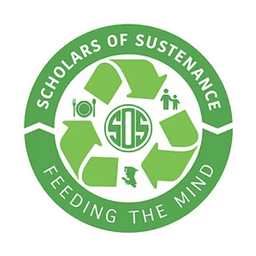Donations for the project will Support to vulnerable communities throughout Thailand with1,000,000meals
Period of time
Feb 19, 2025 - Dec 31, 2029Location
Nationwide in ThailandSDG Goals
Beneficiary groups of the project
The Food Rescue Program aims to reduce food surplus and food insecurity in Thailand by collecting surplus food from supermarkets, restaurants, and hotels that is still safe to consume and distributing it to underprivileged communities through a network of charities and food banks. This approach helps minimize food waste, reduce environmental impact, and improve access to nutritious food for those in need.
The primary target groups include children, students, the elderly, and low-income families. In terms of quantity, the program successfully distributes millions of meals per year. In terms of quality, it contributes to better health and overall well-being for recipients.
The program operates nationwide, with a focus on urban areas where food surplus is high and communities require the most support.
Social issues
The main issues that the Food Rescue Program seeks to address are food surplus and food insecurity, which stem from several factors:
- Large amounts of food waste – Restaurants, hotels, supermarkets, and the food industry generate a significant amount of surplus food that is still safe to consume. However, due to the lack of an efficient management system, much of this food ends up as waste.
- Food insecurity – While large quantities of food are discarded, many people, especially children, the elderly, and low-income families, struggle with inadequate nutrition and lack access to sufficient food.
- Environmental impact – Disposing of edible food not only wastes the resources used in food production but also contributes to greenhouse gas emissions from food decomposition in landfills.
This program focuses on connecting surplus food sources with communities in need through an efficient distribution system, reducing food waste while increasing access to nutritious food.
Approaches to addressing issues
Food Rescue from Surplus Sources - We collect edible surplus food from various sources, including restaurants, hotels, supermarkets, food manufacturers, and retail stores, to redistribute it to communities in need—preventing it from becoming waste.
Food Sorting and Quality Inspection - All donated food is carefully inspected by our team and volunteers to ensure it is safe and suitable for consumption before distribution.
Food Distribution to Communities in Need - We collaborate with communities, shelters, schools, temples, and nonprofit organizations to deliver food to vulnerable groups such as underprivileged children, the elderly, homeless individuals, and low-income families.
Education on Nutrition and Food Waste Reduction - In addition to food distribution, we provide training and workshops for communities and partners on healthy eating habits and practical ways to reduce food waste in daily life.
Operational Plan
Jan 2025 - Dec 2029
Food Rescue and Distribution Program Plan (January 2025 - December 2031) After receiving donations, the Food Rescue Program will be systematically implemented to achieve sustainable impact. The five-year plan (2025-2031) aims to enhance the efficiency of food collection and distribution to underserved communities through the following phases: Year 1 (2025): Structural Adjustment and Network Expansion • Strengthen partnerships with hotels, shopping malls, and food manufacturers. • Develop logistics and food storage systems to minimize losses during transportation. Years 2-3 (2026-2027): Capacity Building and Food Distribution Expansion • Increase the number of food donation collection points and establish distribution centers in key areas. • Systematically expand access to food-insecure communities. Years 4-5 (2028-2029): Sustainability and Impact Scaling • Develop strategies to help communities become self-sufficient through foundation-led programs. • Promote education on nutrition and food waste reduction in schools and organizations. • Evaluate program outcomes and share best practices for future expansion. Over this five-year period, the program aims to significantly reduce food waste while continuously providing nutritious meals to those in need. This initiative will contribute to a more food-secure and sustainable society. 🍲
Budget Plan
| Item | Quantity | Amount (THB) |
|---|---|---|
| Food Distribution Operational Cost: | 1,000,000meals | 5,000,000.00 |
| Total Amount | 5,000,000.00 | |
| Taejai support fee (10%) | 500,000.00 | |
Project manager

มูลนิธิ สโกลารส์ ออฟ ซัสทีแนนซ์
มูลนิธิ สโกลารส์ ออฟ ซัสทีแนนซ์ เป็นองค์กรไม่แสวงหาผลกำไรที่มุ่งแก้ไขปัญหาขยะอาหารและส่งเสริมความเท่าเทียมในการเข้าถึงอาหารในประเทศไทย เราดำเนินการรับอาหารส่วนเกิน (Surplus Food) ที่ไม่สามารถจำหน่ายได้ เช่น อาหารที่รูปลักษณ์ไม่สมบูรณ์หรือใกล้ถึงวันหมดอายุ จากซูเปอร์มาร์เก็ต โรงแรม ร้านอาหาร และโรงงานผลิตอาหาร ผ่านระบบขนส่งที่มีประสิทธิภาพ เพื่อนำไปส่งต่อให้กับชุมชนที่มีรายได้น้อย ซึ่งขาดแคลนอาหารที่เพียงพอและมีคุณค่าทางโภชนาการ ตั้งแต่ปีพ.ศ. 2559 จนถึงปัจจุบัน เราสามารถส่งต่ออาหารไปแล้วกว่า 50 ล้านมื้อ มีพันธมิตรมากกว่า 1,700 องค์กร สนับสนุนชุมชนมากกว่า 6,000 แห่ง และมีส่วนช่วยลดการปล่อยก๊าซคาร์บอนไดออกไซด์ได้ถึง 300,000 ตัน ผ่านการลดขยะอาหารอย่างเป็นระบบ
View ProfileCreate a fundraising page
Collaborate to fundraise in support of this project
Create a fundraising page